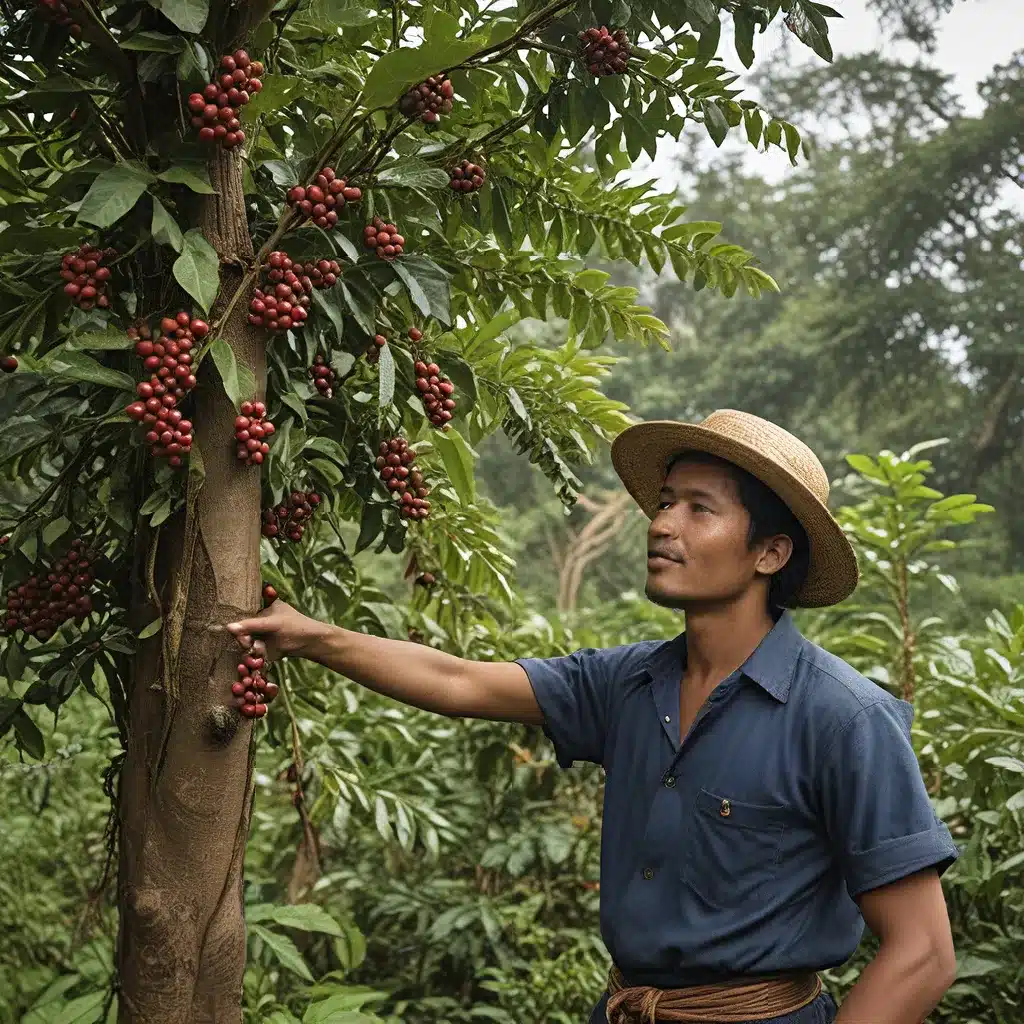
As a self-professed coffee enthusiast, I’ve always been fascinated by the rich tapestry of stories woven into every cup. Beyond the familiar flavors and aromas, there lies a world of intrigue – tales of ancient traditions, resilient communities, and the relentless pursuit of perfection. Recently, I embarked on a journey to uncover the untold narratives that give life to the coffee we so dearly cherish.
Uncovering the Hidden Histories
My adventure began with a visit to the Museum of History & Industry (MOHAI) in Seattle, where I stumbled upon an intriguing event – the History Café. This monthly series delved into the diverse histories that have shaped the Puget Sound region, from the vibrant LGBTQ activism to the groundbreaking hip-hop scene.
As I explored the MOHAI website, I was particularly drawn to the program focused on the Chinatown-International District, which had been hit hard by the COVID-19 crisis. The stories of resilience and resistance shared by local activists piqued my curiosity, and I realized that there was so much more to the coffee industry than met the eye.
Connecting with Coffee’s Origins
With a renewed sense of wonder, I decided to dive deeper into the origins of coffee – not just the geographic regions, but the human stories that breathe life into each bean. I knew that true understanding required looking beyond the polished veneer of specialty coffee shops and delving into the complex histories and diverse communities that have shaped this global commodity.
One region that captivated me was Ethiopia, often referred to as the birthplace of coffee. I learned about the legend of Kaldi, the goatherd who allegedly discovered the energizing effects of coffee after observing his herd’s frisky behavior. This enchanting tale hinted at the deep cultural significance of coffee in African societies, where it has long been woven into rituals, celebrations, and daily life.
Exploring the Resilience of Coffee Communities
As I dove deeper, I uncovered stories of resilience and resistance that had often been overshadowed by the glossy narratives of the coffee industry. Take the case of the Ghadar Party, a revolutionary movement founded by South Asian migrants in the early 20th century. These pioneers used newspapers and literature as tools to fight against colonial regimes, showcasing the powerful intersection of coffee, activism, and identity.
Similarly, the Filipino migrant workers who toiled in the fields of California and the seafood canneries of Alaska have left an indelible mark on the history of coffee and labor rights. Their harrowing stories of survival and determination continue to inspire those who seek to champion the rights of marginalized communities within the industry.
Embracing the Diversity of Coffee Cultures
As I delved further into the world of coffee, I was struck by the sheer diversity of cultural traditions and culinary practices that have evolved around this ubiquitous beverage. From the Sephardic Jews of Seattle to the Indigenous communities of the Pacific Northwest, each group has imbued coffee with their own unique flavors, rituals, and narratives.
The more I explored, the more I realized that coffee is not merely a commodity, but a lens through which we can better understand the rich tapestry of human experience. Whether it’s the intricate latte art of a skilled barista or the time-honored brewing methods passed down through generations, every cup tells a story – one that is deeply personal, yet profoundly universal.
Embracing the Complexities of Coffee’s Future
As I reflect on my journey of rediscovery, I’m struck by the nuances and complexities that lie at the heart of the coffee industry. While the specialty coffee market has undoubtedly brought greater awareness and appreciation for the craft, there are still systemic challenges that must be addressed.
Issues of sustainability, fair trade, and equitable distribution continue to loom large, reminding us that the true value of coffee extends far beyond the flavor profile or the price tag. As researchers and advocates delve deeper into these critical topics, I’m hopeful that the future of coffee will be shaped by a renewed commitment to social justice, environmental stewardship, and the preservation of diverse cultural traditions.
In the end, my journey has taught me that every sip of coffee is a portal into a world of stories, struggles, and triumphs. By embracing the complexities and celebrating the diversity that defines the coffee industry, I believe we can create a more equitable and sustainable future – one that honors the rich histories and vibrant communities that have given birth to this cherished beverage.















